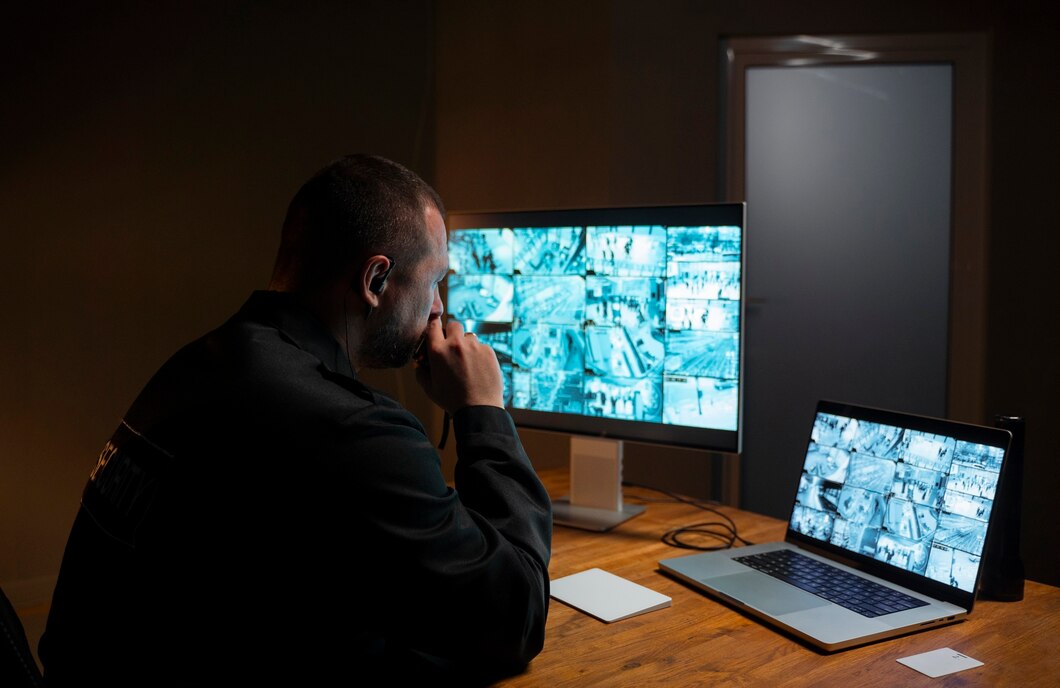Have you ever wondered if it’s illegal for your boss to watch you via CCTV at work? Or, if you work from home, you might be curious whether your employer can legally monitor you on camera all day. This guide is here to help clarify whether it’s legal to watch employees on camera in the workplace.
Is Monitoring Employees on Camera Legal?
The short answer is no, it’s not illegal for employers in the UK to monitor their employees on camera, provided they inform their staff about it. Workplace monitoring can be beneficial for businesses, helping them meet safety obligations and preventing misuse of IT systems, among other things. However, it’s not just about security; employees have rights that must be respected.
Employers must ensure they handle personal data according to GDPR regulations. Legal forms of monitoring include tracking website visits, CCTV within the premises, and bag checks. However, it is illegal to monitor staff in private areas like toilets or changing rooms, to hide cameras, or to withhold information about camera locations. Breaching these rules could result in a violation of the Data Protection Act.
Workers’ Rights and Surveillance
CCTV is ubiquitous in our daily lives, especially in cities where you might be caught on camera up to 70 times a day. But what about in the workplace? Employers have the legal right to monitor employees, whether they work in an office or from home, but they must follow certain legal requirements.
Employees have the right to be informed about workplace monitoring before it starts. This information may be included in contracts, written statements, or staff handbooks. Before implementing surveillance, employers must conduct an impact assessment to evaluate the pros and cons, considering alternative methods and how employee data will be managed to avoid GDPR breaches.
UK Laws Governing Workplace Surveillance
Three main pieces of legislation guide UK employment law regarding employee monitoring:
- The Regulation of Investigatory Powers Act (RIPA) 2000 and 2016
- The Telecommunications (Lawful Business Practice) (Interception of Communications) Regulations (LBP) 2000
- The General Data Protection Regulations 2018 and The Data Protection Act 2018
The Human Rights Act 1998 (HRA) also plays a crucial role in balancing the employer’s right to monitor with the employee’s right to privacy. Under GDPR, camera footage is considered personal data, and employers must disclose the information they hold on employees.
If you are concerned about potential discrimination, you can submit a subject access request (SAR) to review the data your employer holds on you.
Remote Work and Surveillance
If you work from home, you may wonder if your employer can watch you via CCTV. The answer is yes, but only if they inform you, just as they would in a physical workplace. Employers can use software to take screenshots, track work hours, and log keystrokes, but this must be disclosed.
Monitoring employees at home raises moral and ethical concerns. Employers must balance their need for surveillance with respect for employee privacy, as an overly intrusive approach can lead to stress, absenteeism, and staff turnover.
Addressing Employee Concerns
Employees may have valid concerns about workplace surveillance, including trust issues, privacy fears, and worries about potential discrimination. Employers can alleviate these concerns by being transparent about monitoring practices, including how data is collected, where cameras are placed, and the process for handling SAR requests.
The Importance of a Workplace Surveillance Policy
Employers should have a workplace surveillance policy that covers both office and remote work monitoring. This policy should explain what data is collected, why, and for how long it will be stored. A clear policy helps build trust between employers and employees.
Top Tips for Employers on Workplace Surveillance
- Understand the Laws: Know the relevant UK laws, including the Data Protection Act 2018 and GDPR.
- Create Clear Policies: Develop straightforward policies explaining the purpose and scope of monitoring, and ensure employees are informed.
- Respect Privacy: Avoid monitoring in private areas and be mindful of employees’ privacy rights.
- Obtain Consent: Get informed consent when monitoring personal data, such as emails.
- Protect Data: Secure the data collected with encryption and access controls, and have clear rules for data retention and deletion.
Staying informed and transparent about surveillance practices is crucial for maintaining a positive work environment and complying with the law.







